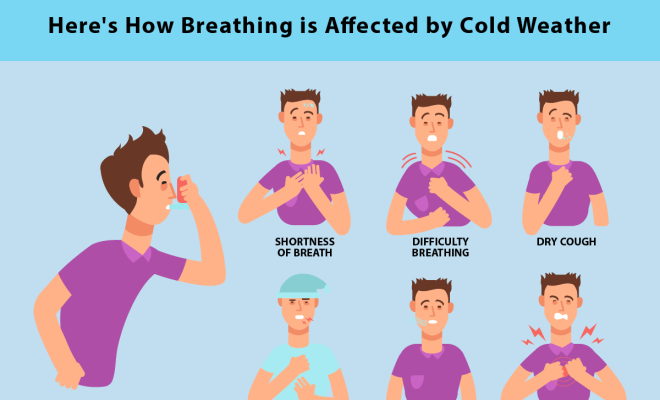The Impact of Cold Weather on Your Breathing

As the winter season approaches, it’s essential to understand how cold weather can affect your breathing. The cold and dry air associated with wintertime can make even a simple walk outdoors feel strenuous. This article explores the science behind this phenomenon and how you can protect your respiratory system during colder months.
Why Cold Air Affects Breathing
The primary reason that cold weather affects our breathing lies in the air temperature and humidity levels. Cold air is generally drier than warm air, both of which impact your respiratory system. When we breathe in cold air, our body works overtime to warm and humidify the air before it reaches our lungs. This extra effort can lead to an increased heart rate and higher blood pressure, making it more difficult to breathe comfortably.
Moreover, breathing in cold air can cause the following issues:
1. Bronchoconstriction: Exposure to cold air tends to constrict your airways, which may result in wheezing, coughing, and shortness of breath. This effect is more pronounced for people with pre-existing respiratory conditions, such as asthma or chronic obstructive pulmonary disease (COPD).
2. Increased mucus production: To protect itself from the cold, dry air, your body produces more mucus in the nasal passages and lungs. However, this excess mucus can make it difficult to breathe, especially if you’re already congested due to a cold or flu.
3. Risk of hyperventilation: The discomfort experienced while breathing in cold air may cause an increase in your breathing rate or depth, potentially leading to hyperventilation. Symptoms include dizziness, shortness of breath, and feelings of anxiety.
Tips for Protecting Your Breathing During Cold Weather
To minimize the impact of cold weather on your respiratory system, consider implementing these helpful tips:
1. Wear a scarf or mask: Covering your nose and mouth with a scarf or mask can help warm and humidify the air you breathe in. This practice can prevent your airways from constricting and may offer relief from associated respiratory symptoms.
2. Take preventive medication: If you have a respiratory condition, consult your healthcare provider for guidance on managing your symptoms during cold weather. They may recommend using an inhaler or other medication before heading outdoors to prevent bronchoconstriction.
3. Stay well-hydrated: Drinking plenty of fluids during winter is essential to maintain optimum mucus consistency and prevent dehydration, which could exacerbate breathing difficulties.
4. Exercise indoors: When the weather is extremely cold, consider moving your workouts indoors to protect your respiratory system from the harsh outdoor environment.
5. Breathe through your nose: Breathing through your nose rather than your mouth can help warm and humidify the air before it reaches your lungs, reducing the impact of cold air on your respiratory system.
Winter has its set of challenges when it comes to respiratory health. However, with the right precautions and a better understanding of how cold weather affects breathing, you can minimize discomfort and enjoy outdoor activities all season long.






